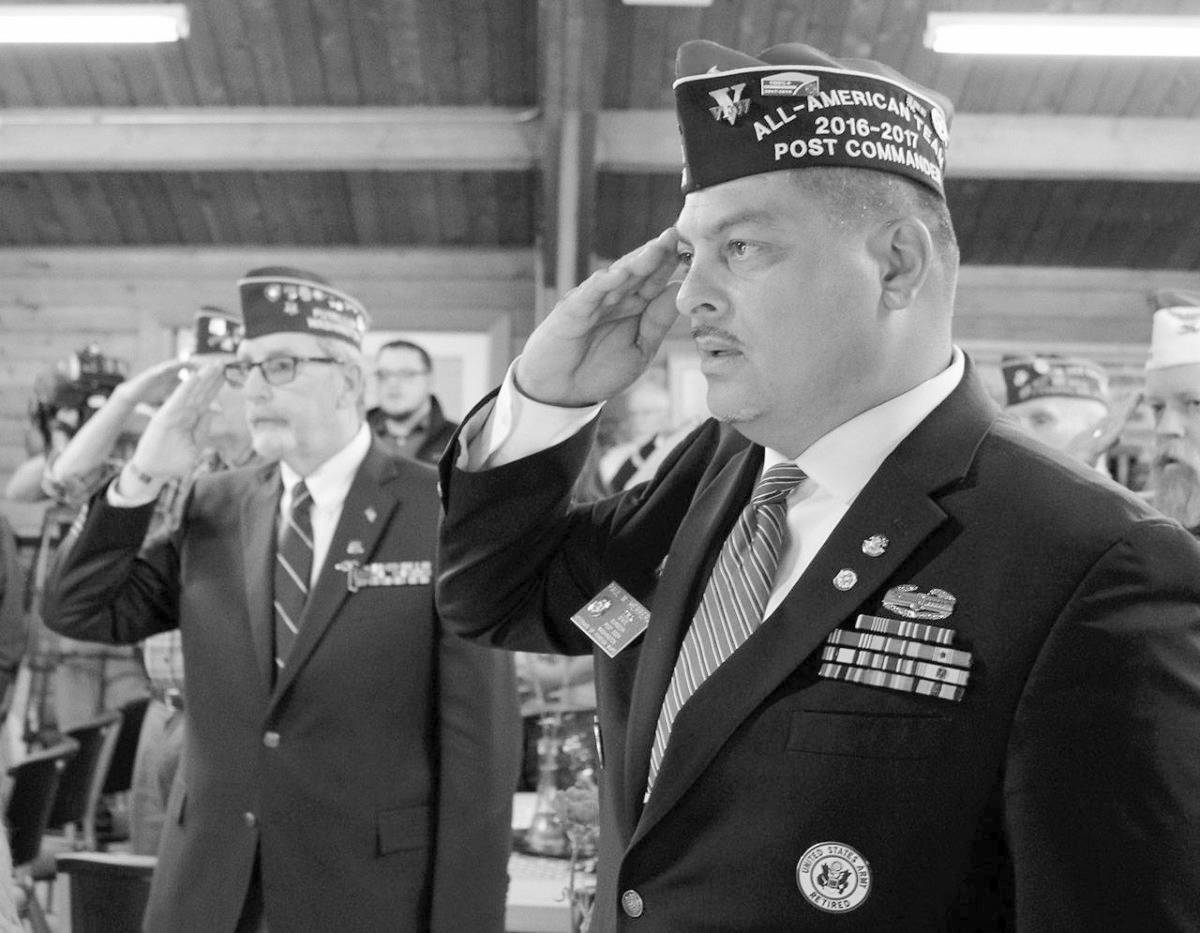About 9 million Americans served in the Vietnam War, and 7 million of the service members are still living today. At the Vietnam Veterans Pinning Ceremony on Wednesday, more than 60 of those veterans were finally welcomed home.
The ceremony was attended by a crowd of nearly 130 people at the Federal Way Senior Center in Auburn and hosted by Humana, a health insurance company and commemorative partner of the Vietnam War Commemoration.
When Vietnam veterans returned in the ‘60s and ‘70s, nearly all of the service members were met with mistreatment, said SFC Steve Woodward, a member of Veterans of Foreign Wars Post 2224.
Woodward served from 1973-1993 in the U.S. Army 9th infantry division, and attended the ceremony in support of his fellow brothers in arms.
“I lived through that era, so I know exactly what happened,” Woodward said. “My friends that were deployed and came back from Vietnam were not treated very well at all. Our Vietnam era veterans overall were treated very poorly.”
Many service members changed out of their uniforms at the airport upon returning home so they wouldn’t be recognized as soldiers, Woodward said, because they faced such a hate from the public, including being spit on or called names.
“[The country] had to hate somebody,” Woodward said. “So they hated the service members. When these veterans came back, they didn’t have an outlet and couldn’t say they fought for their country.”
“The country was so divided, and a lot of the division was that they didn’t want us in that war,” said Ben Cummins, commander of VFW District 3 for Pierce County and Yelm.
Cummins served in the U.S. Army and the Airforce between 1987-1997 and also attended the event in support.
“The country took it out on the service members, rather than the government that sent them there,” he said.
There was a reluctance to reveal your service after seeing the mistreatment, said Art Sitarsky, 1st vice commander for Post 2886 in Federal Way.
Sitarsky served in the Marine Corps from 1962-1966, deployed in Vietnam from January 1965 to April 1966.
“My family didn’t know I served in Vietnam,” he said, choking up as he reminisced. “I never told anybody until the late ‘80s and early ‘90s. I was married in 1971, and my wife knew I served in the Marine Corps, but didn’t know I served in Vietnam.”
Years later, he bought a Vietnam Veteran baseball cap to put in the back window of his car, but hesitated to display his service because he remembered the greetings veterans once faced, he said.
“It touched my heart today in the fact that people really appreciate what we’ve done for our country,” Sitarsky said. “For these people to come and thank us, it means a lot. It wipes away a lot of hurt.”
“I stand here today and remove my designation as a commander, and I want to talk to you as a grateful American,” said keynote speaker of the event Commander Paul Herrera of Puyallup Valley VFW Post 2224. He continued, “I want to represent grateful Americans who wish they could reach out and thank each of you.”
Herrera is an Iraq War veteran and served 20 years in the U.S. Army. He also serves as a police sergeant for the Puyallup Tribe of Indians and is a member of the Veterans Advisory Board for Pierce County. His speech addressed the power and emotion of two simple words.
“When do two words, eight letters earn the stripes as words of gratitude, words of appreciation, words of thankfulness?” he asked. “It happens when we put action behind those words.”
The enormity of the sacrifice, duty, and dedication made by the Vietnam veterans paved the way for soldiers to follow, he said.
“My heart speaks to Vietnam veterans” he said. “Because your place in history helped write my place in history.”
Veterans, active service members, families, city officials, kids, students and community members were witness to the honoring of the men for their service to the United States between Nov. 1, 1955, and May 15, 1975.
“You did not all come home alive. You did not all come home whole. Many of you still are not home,” Herrera said.
A single table set for one was positioned at the front of the room between The National League of Families POW/MIA and American flags, each object placed upon the table a symbol of the service members who never made it home.
“This table is our way of symbolizing the fact that members of our profession of arms are missing from our midst,” said Chaplain Linda Roloff, presenting the missing man table. “They are commonly called POWs, or MIAs. We call them brothers.”
From a small table, to represent the frailty of one prisoner alone against his oppressors. To a slice of lemon upon a plate, a reminder the bitter fate for some. To a pile of salt, symbolizing the tears of families as they wait for their loved one’s return.
We must always remember, she told the crowd.
Veterans were welcomed home and a bronze pin was secured to their lapel. They shared their stories of valor as warm embraces and handshakes were exchanged.
“I don’t regret it,” said Arnold Olmsted, a Federal Way resident who served from October 1959 to October 1968. He was deployed in Vietnam from 1965-1966.
“I wouldn’t take a thousand or million dollars for the experience I had,” he said. “But I also wouldn’t give you three cents for anymore, either.”


